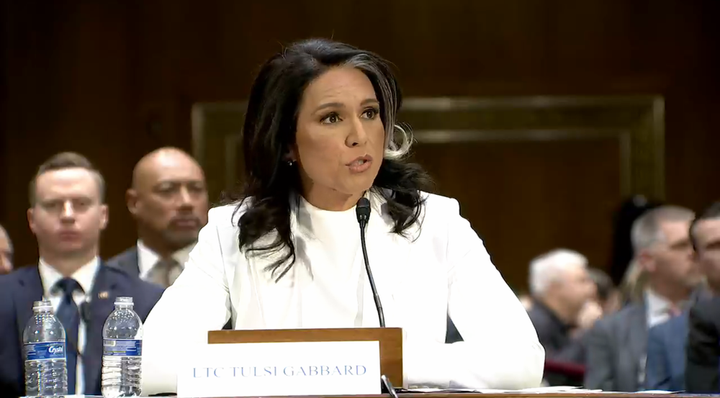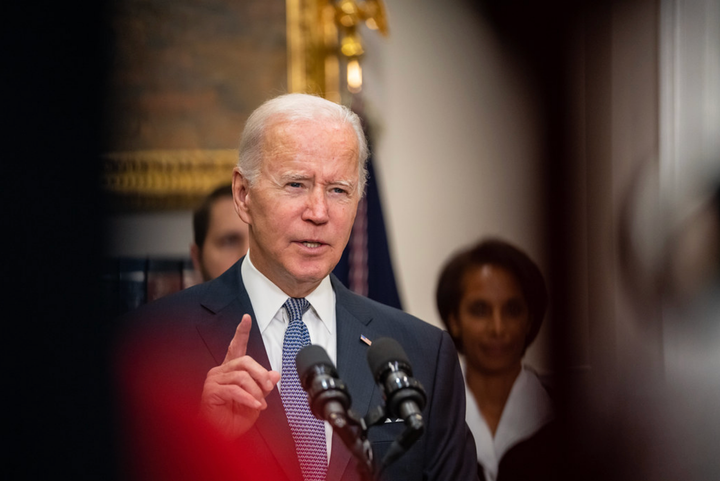Manufacturing Espionage: FBI Targeted Former NSA Employee Who Had Substantial Debt

A former NSA employee was charged with violating the Espionage Act after an undercover FBI agent impersonating an representative of the Russian government convinced him to transmit secret documents via a “secure” connection that was setup by the FBI at Denver’s Union Station.
Jareh Dalke, a 30-year-old man living in Colorado Springs, was an information systems security designer for the NSA. He worked for the NSA from June 6 to July 1, 2022.
An affidavit from an FBI agent [PDF], which was submitted in support of the criminal complaint, does not indicate what specifically led the FBI to target Dalke with a sting operation.
In October 2011, after US Army whistleblower Chelsea Manning submitted hundreds of thousands of documents exposing war crimes and diplomatic corruption to WikiLeaks, President Barack Obama established a national insider threat program.
The expansion of an interagency insider threat program intensified after NSA whistleblower Edward Snowden exposed mass surveillance programs that were violating the privacy of millions in the United States and around the world. Security officials were committed to stopping the so-called next Snowden.
Coupled with widespread surveillance, training materials primed national security employees and contractors to identify “insider threat motives” among their colleagues: “greed or financial difficulties, disgruntled or wants revenge, ideology, divided loyalties, vulnerable to blackmail, ego/self-image, ingratiation, and family/personal issues.”
According to an FBI agent’s affidavit, Dalke allegedly had some of these “insider threat motives.”
The FBI identified “family/personal issues,” which is why he was only with the NSA for such a short amount of time. The affidavit says that Dalke indicated on his exit survey on June 28 that he “had to leave due to a family illness, and the agency was unable to support the amount of time I needed to be away (9 months).”
“Financial difficulties” were also allegedly identified. Dalke filed for Chapter 7 bankruptcy, which was granted on March 29, 2018.
“At that time, Dalke reported that he had approximately $32,809.52 in student loan debt and $50,987.34 in other non-secured debt, primarily credit card debt,” the affidavit states. “He had approximately $8,373.12 in total assets.”
He had a home with a mortgage and was married. On August 26, 2022, the affidavit claims that Dalke informed an FBI “online covert employee,” or undercover agent, that he had $237,000 in debt. He shared that $93,000 was “coming due very soon.”
“Dalke requested $85,000 in return for all the information currently in his possession,” the affidavit additionally claims. “He said he would be ‘happy to chip away at the amount that remains with additional future information’” shared with the agent, who represented himself as a Russian government representative.
Dalke Emphasizes His 'Financial Need' While Communicating With Undercover FBI Agent
The FBI has previously come under scrutiny for targeting poor Black men by enticing them to plot terrorism. Cases like the Newburgh Four, the Fort Dix Five, and the Liberty City Seven are well-known examples.
If the FBI can spend millions of dollars on sting operations to catch “terrorists” and justify the massive growth of their counterterrorism budgets, they can certainly conduct the same type of operations to catch “insider threats.”
Beginning on July 29, 2022, the undercover FBI agent allegedly used an email account through a “foreign email provider,” which was setup for the sting operation. An email to Dalke from the agent indicated the agent “had been informed that he should reach out to [Dalke’s email account] to discuss items of mutual benefit.”
Dalke responded, however, the affidavit does not include any words from the reply. It says two days later on August 1 that the agent asked him, “What do you propose?”
The same day Dalke allegedly told the undercover FBI agent that he “recently learned that [his] heritage ties back to your country, which is part of why I have come to you as opposed to others.” He shared that he became an NSA employee because he “questioned” the US government’s “role in damage to the world in the past” and also had a “mixture of curiosity for secrets and a desire to cause change.”
Emphasizing his “financial need,” Dalke sought cryptocurrency payment from the undercover FBI agent. “[T]here is an opportunity to help balance scales of the world while also tending to my own needs,” Dalke added.
The undercover FBI agent requested “proof of access” to classified information on August 5 “in order to determine proper compensation.” Dalke allegedly transferred excerpts of documents to show he had “legitimate access and willingness to share.”
Upon receiving the excerpts, the agent asked Dalke to “send his preferred cryptocurrency address.”
While the FBI kept Dalke waiting a little more than two weeks for funds that they knew he needed to pay off his debt, Dalke allegedly sent information from a second unnamed US agency. He even tried to return to the NSA and “applied for an external vacancy” on August 11.
The NSA’s Human Resources Department—unaware of the sting operation—conducted a telephone interview with Dalke on August 24. (He was not hired.)
Agent Sends Cryptocurrency Funds To 'Help With Dalke's Debts'
On August 22, according to the affidavit, the undercover FBI agent informed Dalke the “requested cryptocurrency” would be paid very soon. He also told Dalke that his “continued cooperation would be a great service to individuals” in Russia. Dalke replied, “This is great news!”
In the meantime, on August 23 and 24, Dalke allegedly tried to verify the undercover FBI agent’s identity as a representative of the Russia government by reaching out through “multiple published channels to gain a response.” He even sent a submission to the Russia Foreign Intelligence Service’s TOR site, a privacy tool useful for sending leaked documents.
Dalke wanted the agent to assure him that he was associated with the Russian government and not just part of the American government “trying to stifle a patriot.” He also asked the agent to post on an official website or through a “media service” associated with the government.
It’s unclear if the undercover FBI agent did anything to reassure Dalke of his claimed identity,
On August 24, the FBI deposited nearly $100 in cryptocurrency to make sure the address worked, and then one day later, the bureau sent a little more than $4,800 worth of cryptocurrency to “help with Dalke’s debts.”
Dalke was allegedly disappointed that the documents were not “valued more highly.” He shard that he may have to find "alternative means to remove [his] debt in the near future” so that it did not threaten his employment.
A day after receiving funds to help with his debt, Dalke allegedly told the undercover agent that he owed $237,000 and $93,000 was “coming due very soon.” This was when he requested $85,000 for the documents.
FBI Pressure Dalke To Commit 'Espionage' In DC Instead Of Colorado
By this time, Dalke had committed acts that could be prosecuted under the Espionage Act, however, the FBI did not descend upon his home in Colorado Springs and arrest him. The undercover agent tried to convince Dalke to travel to Washington, DC, to use a “secure” connection to transfer the rest of the documents he had in his possession.
The FBI likely wanted Dalke to commit “espionage” in the Eastern District of Virginia, which is the Justice Department’s preferred jurisdiction for prosecuting these cases.
Dalke refused to travel to DC because he was allegedly fearful that he would be monitored. At one point, he even declared that the United States is “not as great as it thinks it once was. It is all about the businesses and their money, not anything about the people or those that serve it to include the military.” (Dalke was a private first class soldier in the US Army.)
Around this time, the undercover FBI agent sent nearly $11,500 to Dalke. Two thousand dollars was for “travel expenses to the Washington DC area” and the remainder was for the information he shared from a second unnamed US agency.
The agent “emphasized that there was an urgency to receiving the documents because of the current ‘world situation,’” according to the affidavit.
Dalke still would not travel to DC, but he was willing to go to Denver. He allegedly claimed he could “attend a program at a facility in Denver,” which would provide him cover (even though he was no longer working for the NSA). This was accepted by the FBI, and the undercover FBI agent told Dalke there would be a “secure digital connection" for four hours on September 28.
He continued to have doubts about whether the agent was truly a representative of the Russia government and asked two days before the transfer for a “signal” to help reassure him before the transfer. But the agent refused to provide any "verification."
On September 28, the FBI setup a “secure” connection nearby Union Station in Denver. It was monitored by the FBI, and Dalke was arrested at Union Station.
Local news media in Colorado reported that SWAT team trucks, FBI vans, and unmarked cars swarmed the residence where Dalke lived.
As the Colorado Springs Gazette described, a nearby resident who did not want to be named told the newspaper the “neighborhood off Austin Bluffs Parkway and Templeton Gap Road is ‘nice and quiet.’”
“It’s why we moved here,” she said to the Gazette. “There’s a bunch of kids. There’s a school right over there. They haven’t told us anything, and it’s scary. What’s going on in that home?”
Nobody in the quiet neighborhood knew the FBI had been engaged in surveillance against Dalke’s home for weeks, and agents had just arrested him after succeeding in their effort to coerce the former NSA employee into committing “espionage," an act the agents knew he would complete because he needed funds to pay off his debts.




Comments ()